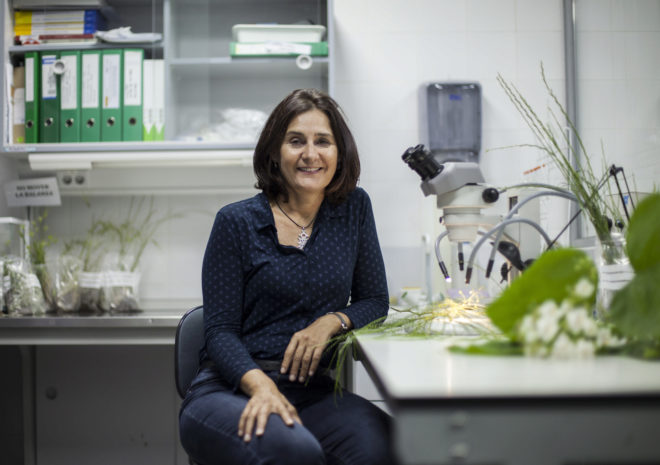https://clarivate.com/Each year, Clarivate™ identifies the world's most influential researchers ? the select few who have been most frequently cited by their peers over the last decade. Montserrat Vilà, Professor of Research at the Doñana Biological Station – CSIC and specialized in the ecology of biological invasions, is one of them. In 2021, fewer than 6,700, or about 0.1%, of the world's researchers have earned this exclusive distinction. Montserrat Vilà has been on this list every year since 2014.
Montserrat Vilà is one of the most recognized researchers at the Doñana Biological Station - CSIC. She obtained her Bachelor Degree and PhD in Biology from the Autonomous University of Barcelona. For some years she worked as a postdoctoral researcher at the University of Berkeley (California), at the Center for Ecological Research and Forestry Applications (CREAF) and the Autonomous University of Barcelona. In 2006 she joined the Doñana Biological Station as a researcher, where she has been carrying out her scientific activity ever since. In 2010, she is promoted to Research Professor, the highest level in the scientific career in the Spanish National Research Council (CSIC).
You can access to the complete list here.
http://www.montsevila.org/index.php

 Las altas temperaturas están provocando que las lagunas y las marismas de Doñana pierdan agua rápidamente
Las altas temperaturas están provocando que las lagunas y las marismas de Doñana pierdan agua rápidamente




